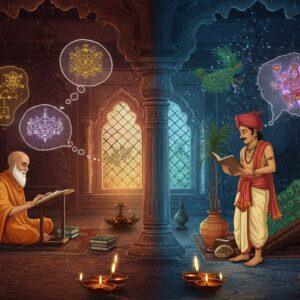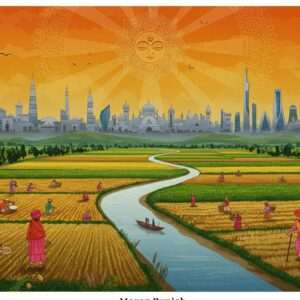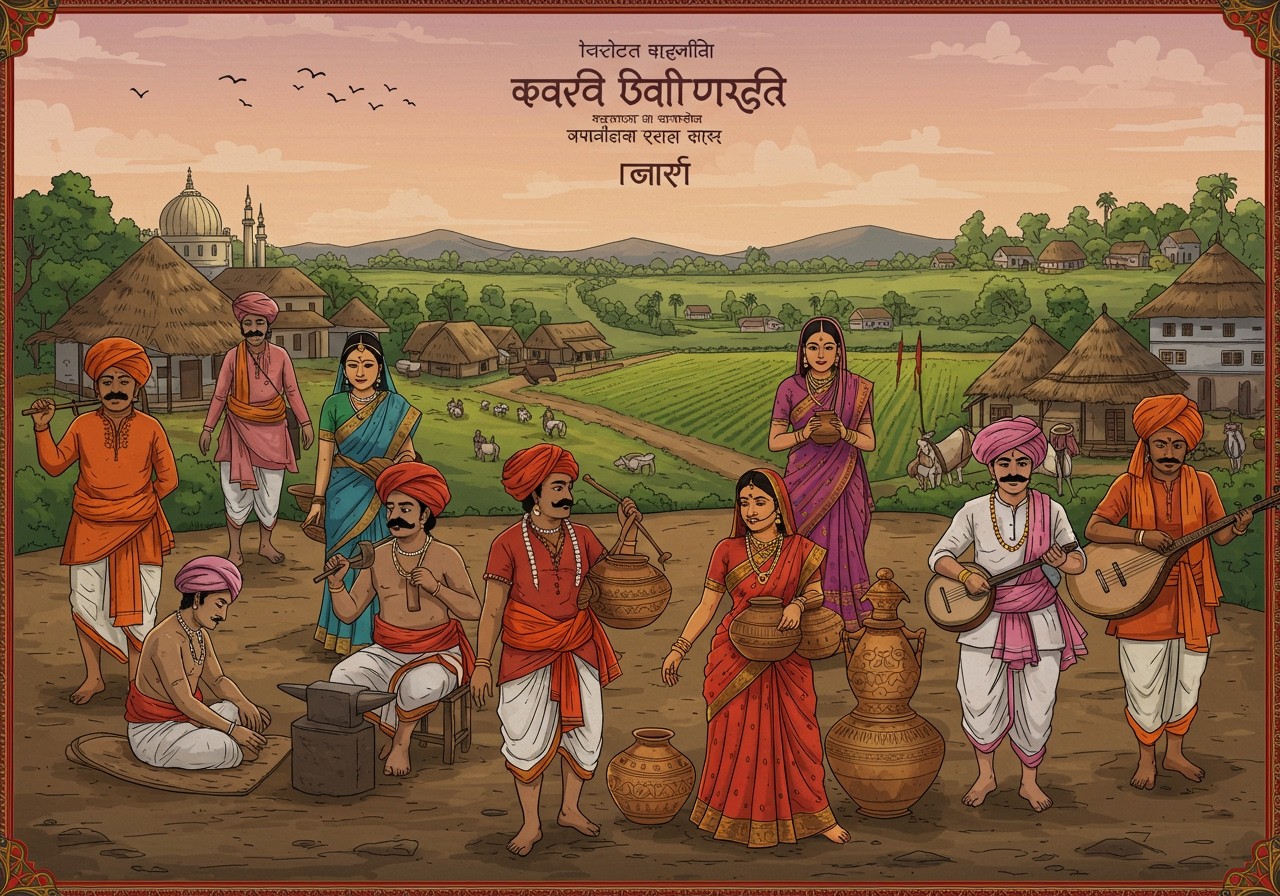
In the heart of rural Maharashtra, long before the hustle and bustle of modern life, there existed a beautiful system that was the very backbone of village society. It was a world built on mutual respect, shared responsibilities, and a deep sense of community. This was the Bara Balutedar system, a timeless tradition that paints a vivid picture of India’s rich social and cultural heritage. Let’s take a heartfelt journey back in time to understand this incredible structure that nurtured our villages for centuries.
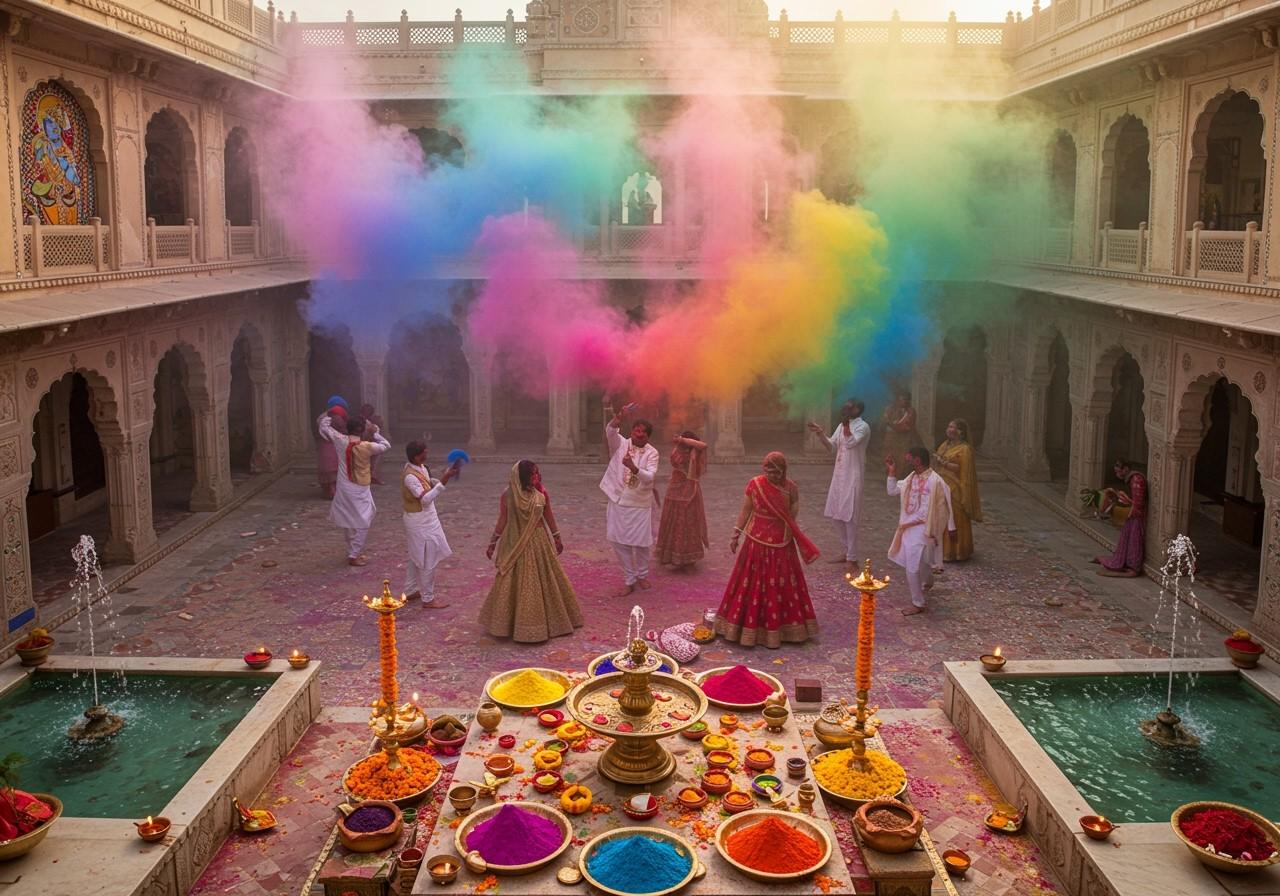
What Exactly Was This Village Ecosystem?
Imagine a village that functions like a perfectly tuned instrument, where every string plays its part to create a harmonious melody. That was the essence of the Bara Balutedar system. The term ‘Bara’ means twelve, and ‘Balutedar’ refers to the artisans and service providers who were the twelve pillars of the village economy. This hereditary system, much like the Jajmani system in North India, wasn’t just about work; it was about a way of life, where each family had a designated role passed down through generations. It was a world where everyone was needed, and everyone belonged.
The Twelve Pillars: The Artisans and Service Providers Who Held the Village Together
The strength of this system lay in its twelve key roles, each indispensable to the daily life and special occasions of the community. While the exact list could vary slightly from village to village, these were the souls who kept the wheels of society turning:
- Joshi (The Astrologer): The Brahmin astrologer was the village’s guide, consulting the stars to determine auspicious times for festivals, weddings, and sowing crops. His wisdom was sought before any significant event, ensuring everything was done in harmony with the cosmos.
- Sutar (The Carpenter) & Lohar (The Blacksmith): These two were the village engineers. The Sutar crafted everything from ploughs for the farmers to the wooden structures for homes and temples. The Lohar forged the iron tools that tilled the land and built the community, his hammer beats a constant rhythm of progress.
- Kumbhar (The Potter): The potter shaped the earth into vessels that held water, cooked food, and lit up homes as diyas during festivals. Every pot he made was a piece of the earth, given form to serve the people. Much like these humble potters, at Poojn we value handcrafted items. Explore our collection of beautiful decorative items that carry the same touch of tradition.
- Nhavi (The Barber) & Parit (The Washer): The Nhavi was much more than a barber; he was a messenger for weddings, a musician during festivals, and even a masseur. The Parit ensured the village was clean and presentable, washing clothes and playing a vital role in rituals of purity.
- Chambhar (The Cobbler): With skill and precision, the Chambhar crafted and repaired leather footwear and other goods, ensuring the villagers could walk their paths comfortably. His work was a symbol of durability and practicality.
- Mahar & Mang (The Protectors and Rope Makers): The Mahar community were the traditional guardians of the village, acting as watchmen, messengers, and arbitrators in land disputes. The Mang community skilfully wove ropes and organic fibres, creating essential items for farming and daily use.
- Gurav (The Temple Priest): The Gurav was the devoted caretaker of the village temple, performing daily rituals and ensuring the divine presence was honoured. His role was central to the spiritual well-being of the entire community. For your own spiritual practices, find authentic and pure pooja essentials at our Dashakarma store.
- Koli (The Water Carrier): The Koli managed the village’s water resources, a life-giving role. They often doubled as fishermen and helped people cross rivers, connecting the village to the world beyond.
- Teli (The Oil Presser): The Teli extracted oil from seeds, providing the fuel for lamps that lit up homes and the oil used for cooking, keeping the hearth of every family warm and bright.
A System of Mutual Respect, Not Just Barter
It’s important to understand that this was not a simple cash-for-service arrangement. The Balutedars were compensated through a system called ‘Baluta,’ a share of the village’s agricultural harvest. This was their hereditary right, or watan. This meant their well-being was directly tied to the prosperity of the village. If the harvest was bountiful, everyone benefited. On special occasions like weddings or festivals, they received additional gifts of grain, clothes, or money for their services, making them integral parts of every family’s joy and celebration.
Just imagine the Nhavi (barber), not only cutting hair but also playing festive music at a wedding and acting as a trusted messenger—he was treated like family, a cherished part of the ceremony itself. This deep integration is what made the system so special and enduring.
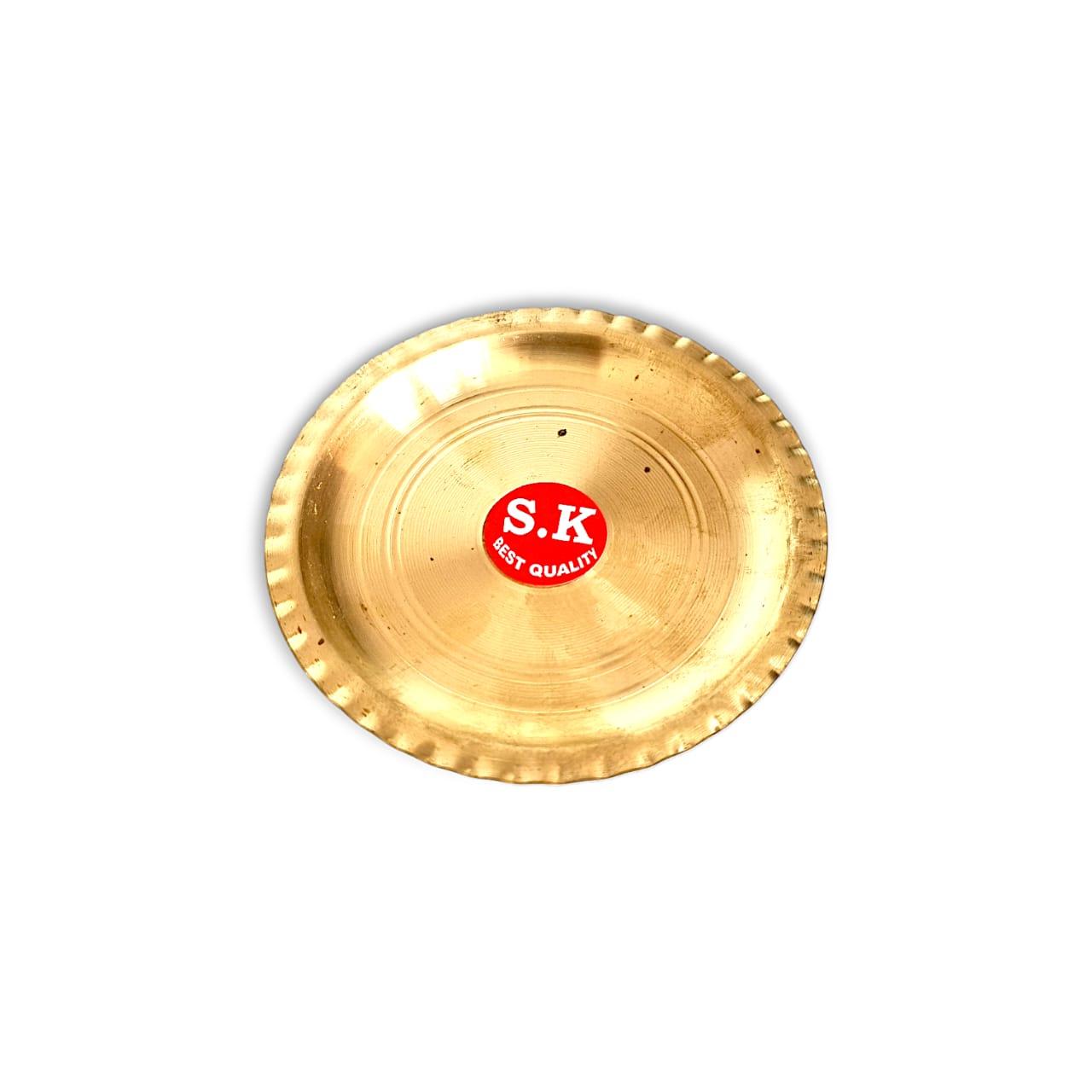
Echoes of the Past in Our Present
Many wonder if the Bara Balutedar system still exists. While the formal system was officially abolished by law in 1958 and modern life has changed village economies, its spirit lives on. The skills of the Sutar, the Lohar, and the Kumbhar have been passed down and are now seen as precious artisanal crafts. The values of community interdependence and respect for traditional occupations are lessons that remain deeply relevant even today.
This legacy of craftsmanship and devotion is what we at poojn.in aim to honour. We believe in preserving these timeless traditions by making authentic, high-quality cultural goods accessible to everyone. When you bring home a handcrafted brass pooja plate or a meticulously made item for your rituals, you are not just buying a product; you are supporting a legacy that stretches back centuries. You are keeping the spirit of the Balutedars alive.
Exploring this culture helps us understand the profound roots of our society. It’s a beautiful reminder that our strength has always come from community and a shared sense of purpose. By valuing our heritage, we not only honour our ancestors but also build a richer, more connected future for generations to come.

